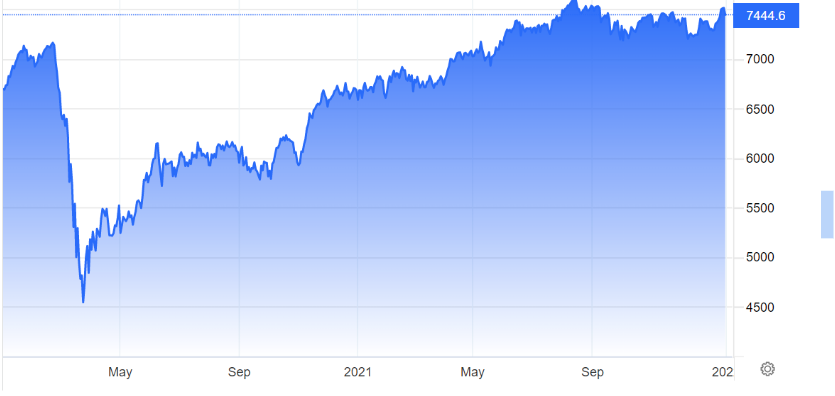Questions to ask before investing in shares
May 19, 2022
Thinking of investing in shares? Ask yourself these 3 questions first!
Seems like investing is the new black. If you’re not building a cryptocurrency wallet, are you even living? Actually, you probably are living, and much less stressfully right now, since crypto has been on a wild ride.
Jokes aside, investing is definitely growing in popularity among women like you. After all, we love having money, and if we can make more of it without breaking a sweat, why wouldn’t we?
And when you consider the difference between letting your hard-earned cash sit lazily in the bank, versus putting it to work in the markets, it makes a lot of sense.
It’s natural to be a bit nervous before you start. But don’t worry, we gotchu! Here are some questions that will help you narrow down your investment strategy.
- What do I want to achieve?
This seems like a basic question, but the goal you are setting will have a big impact on the strategy you choose to get there. You might have your eyes on one big prize like a home deposit. Or you might want to plot out a few milestones like paying for a wedding, setting up an education fund for your kids, then building a big old nest egg.
Spending some time on a goal-setting session is really worth your time. Pour yourself a wine, sit down with bae or your bestie, and start white-boarding all the things you want to achieve, and what they cost. This will help you with the next question…
- What’s my time horizon?
The thing about investing is that it works best when you have some time on your side. Don’t be distracted by all the investment bros telling you they made thousands in a few months! When the market is going up, you can possibly do that. But the thing about markets is, they always come down as well.
That’s why you need time - to smooth out the ups and downs. For investing in shares, a minimum of five years is often advised. Think about it this way: in the covid-downturn of March 2020, the Aussie share market dropped by around 30%. If you had needed your money at that point, and sold your investments, you would have taken that loss.
If you were able to stay the course and hang onto your shares, then their value would have come all the way back – and then some. This was called a ‘V-shape recovery’, which you can see in this graph below. It doesn’t always bounce back that fast, however, so this is more of a snapshot than an entire ‘history of the sharemarket’ lesson.
Chart 1: ASX200 1/1/2020 – 1/1/2022
Source: Tradingeconomics.com
- Do I want to DIY or outsource it?
You may want to consider bringing in expert help, especially in the beginning. There are different levels of ‘outsourced’ assistance when it comes to investing. Perhaps you want a ‘roboadviser’ service, where you tell them your goals and timeline, and they build a portfolio for you.
Another option, which is a bit more hands-on, is to buy ‘Exchange-Traded Funds’ aka ETFs. In this case, you buy a basket of shares that someone else has put together for you. You can invest in something that tracks the market, such as the ASX200, or a theme such as ‘technology’ or ‘sustainable companies’. So, the professionals have picked the stocks for you, like a fancy personal shopper at David Jones putting together a ‘lewk’ for you. But you have to come to the store and pay for them – i.e. buy them on Australian Securities Exchange (or an overseas exchange if it’s international).
You can also choose individual stocks to buy and do the trading yourself. For example, you could buy a parcel of bluechip shares (e.g. Commonwealth Bank or Wesfarmers), or in smaller companies you think will grow. This requires a bit more research and makes it harder to spread the risk across your portfolio. But on the upside, you don’t have to pay fees to anyone to manage it for you.
Another option is to work with a full-service financial adviser, who will do the whole shebang for you. This is more expensive because you pay for their advice, and possibly for them to manage the investments ongoing. But it also means you have someone holding your hand the whole way (in a metaphorical and non-creepy way, ok?).
Also, our golden rules before you start investing are always:
1. Use money you don't need in the next 3-5 years
2. Get out of bad debt first (credit cards, BNPL)
3. Build your emergency fund first!
Of course, this isn’t an exhaustive list of questions, but it’s something to get you thinking. And you don’t need to stop here – check out our other resources or join our next LFC intake.





